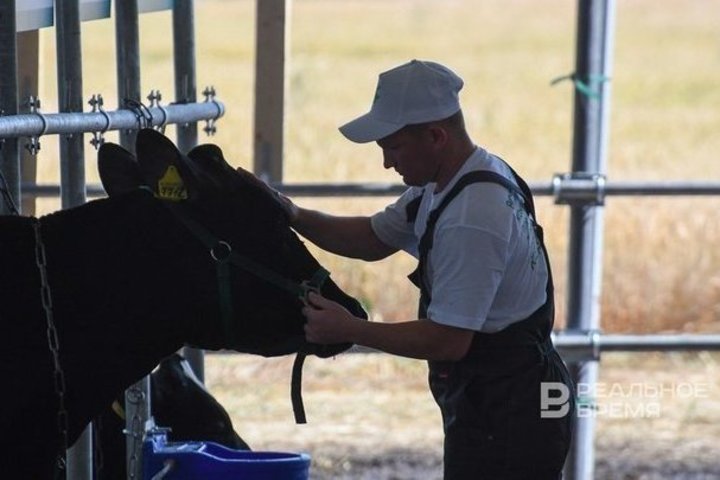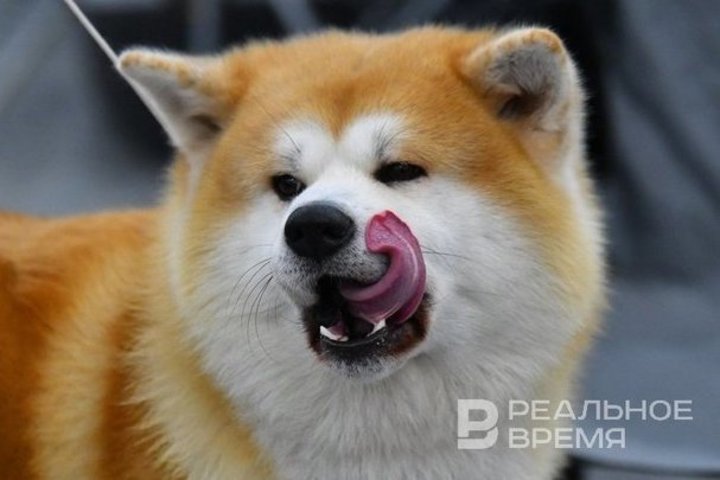‘It takes decades for import substitution’: how Tatarstan copes with a shortage of veterinary medicines

In February, the State Duma introduced a bill allowing the sale of imported veterinary drugs without a certificate of compliance with Russian quality requirements (GMP) until January 1, 2026. In Tatarstan, medicines for animals of foreign production do not exceed 20% of the total amount of purchases. Nevertheless, veterinarians say they are faced with a shortage of certain products. About what drugs are in short supply today and whether the new bill will help solve this problem — in the material of Realnoe Vremya.
The bill puts Russian drugs at a disadvantage
Kirill Nikitin, the head of the directorate of the Vegas Lex law firm, told Realnoe Vremya that starting from September 1, 2023, the introduction into civil circulation of medicines for veterinary use in Russia is carried out only if there is a conclusion on the manufacturer's compliance with the requirements of Good Manufacturing Practice (GMP). Rosselkhoznadzor issues it to each production site.
“GMT sets requirements for the organisation of production and quality control of medicines for medical and veterinary use... This is the minimum set of rules...In addition to the requirements for the quality assurance system, they include requirements for personnel, premises and equipment, documentation, for the production of products (including under contract), complaints and product recalls, self-inspections and other aspects of production activities that are used in the manufacture, packaging and release of medicines to eliminate risks to the consumer," Nikitin explained.

According to the developers of the bill, GMT is aimed solely at unifying the requirements for Russian and foreign manufacturers of veterinary drugs and does not serve protectionist purposes in favour of domestic ones. However, Nikitin believes that the initiative may even harm Russian companies operating in this market.
“If the draft law is adopted in the proposed version, foreign manufacturers will have to issue it (GMT) only for those drugs that are produced in Russia, while the requirement will not apply to imported drugs. At the same time, the requirements will apply to domestic manufacturers in full, which seems very doubtful from the point of view of observing the principles of fairness — the default rules should be the same for all subjects," the lawyer said.

Tatarstan will spend 90 million rubles on veterinary medicines
Gabdulkhak Motygullin, the deputy head of the Main Veterinary Department of the Cabinet of Ministers of Tatarstan, said that in 2023 veterinary medicines worth more than 120.96 million rubles were received from the federal budget to identify and eliminate infectious animal diseases in the republic. 75 million were allocated from the budget of Tatarstan for these purposes.
According to Motygullin, it is planned that this year the purchase of vaccines, reagents, consumables, laboratory equipment, disinfectants, diagnostic kits and reagents will cost the republic 90 million rubles. At the same time, large agricultural producers such as Naberezhnye Chelny-Broiler and Kamsky Bacon independently purchase some veterinary drugs.
“The bulk of the supplied goods are produced in Russia. Foreign-made goods do not exceed 20% of the total amount of purchases, of which half are in unfriendly countries. At the same time, almost all purchased foreign biological products have analogues of Russian production. With the introduction of anti-Russian sanctions, the situation on the veterinary drugs market has practically not changed, since the main supply in the republic has always been at the expense of Russian biofactories," the deputy head of the Main Veterinary Department stated.

Imported vaccines have been replaced by domestic ones
Today, Russia has the most noticeable shortage of vaccines for animals, the representatives of Kazan veterinary clinics told the publication. So, the Nobivac has completely disappeared. As explained by the veterinarian of the Vetbars clinic, Alexandra Ryabova, Russian vaccines are used instead: Multikan, Multifel. According to the zookeeper, there are no significant differences in the drugs. The Russian vaccine is administered intramuscularly, which is more painful, and animals tolerate it a little harder.
“This is not a new vaccine that has appeared now, it's just that we have to work with it more often now. Previously, people wanted an imported vaccine that was more mildly tolerated. Now, since she is not there, we are doing what we have," explained Alexandra Ryabova.

This did not have a serious impact on prices, she noted: “the price of the Russian vaccine in the purchase is slightly rising.”
Ilnur Abdullin, the director of AbsolutVet veterinary clinic, also spoke about the absence of Nobivac.
“When imports disappeared, vaccines, including domestic ones, disappeared. Because everyone switched to domestic vaccines, respectively, they became very scarce. Now it seems, it's fine, [there is] some kind of balance, everything has leveled off," he said.
In his opinion, Russian drugs are even better at forming immunity in animals, because they contain “our viruses.” Czech vaccines are also being imported to the Russian market, Ilnur Abdullin mentioned.
“I take domestic vaccines and drugs against parasites for my own, but I would prefer imported ones, especially complex vaccines. Rabies is normal here, too," Yulia Lagodzinskaya, the owner of two Maine Coon cats, told Realnoe Vremya.

There is no ideal replacement for imported drugs today
After the introduction of anti-Russian sanctions, imported drugs for anesthesia disappeared from the domestic market. But now there are enough domestic analogues, Ilnur Abdullin assured: Meditin, Antimedin, Propofol, as well as gas anesthesia are used. Surgical devices have become more expensive. For example, the price of a needle has doubled, from 35 rubles to 70. But the suture material now costs around 95 rubles, as before.
But there is no shortage of surgical instruments, said Vyacheslav Spitsyn, the director of the Spitsyns Veterinary Clinic. According to him, China is now actively importing them to Russia. But immediately after the sanctions were imposed, there was a period when, due to the cessation of supplies from abroad, there was nothing even to sterilise instruments, the veterinarian recalled.
“They make good sutures here, their absorbable suture material is good. But in order to do all this to the end, you don't have enough strength. There is always something that is lacking," Vyacheslav Spitsyn complained.

According to him, there is a shortage of antibiotics and cardiac drugs. There is no ideal analogue in Russia today.
“Let's say there was an American antibiotic Cephalosporin of the third generation, which could be made for a week. Now it's gone. Instead, there is our Russian-made one, but it has complications and it doesn't work that way. You do that and you know that you don't have to repeat anything, everything will pass. But unfortunately, this means that we have to increase the duration of treatment," Spitsyn gave an example.
A similar situation arose when trying to import the Spanish Azithromycin: the domestic analogue did not have an effect. According to the director of the veterinary clinic, it will not be possible to fully replace foreign drugs with Russian ones soon.
“We still need a lot of time, I think, in order to compensate for all the issues. Not one or two years, it takes decades," he concluded.

At the same time, farmer Ildar Gariev, whose farm has 140 heads of cattle, 100 sheep and 30 goats, told Realnoe Vremya that the search for veterinary drugs for livestock has not become significantly more complicated after the imposition of sanctions:
“There are no problems. We find what we need and switch to domestic production. Our vet chooses something.

Prices for veterinary medicines are rising
Veterinarians also faced an increase in the cost of drugs. Ilnur Abdullin said that medicines that used to cost two thousand rubles before the introduction of anti-Russian sanctions are now sold for three thousand. In 2022, when the deficit first appeared, prices in Moscow rose as much as 25 thousand rubles, in Kazan — up to five or seven.
According to the director of Absolutvet, pills against ticks and fleas have significantly increased in price. “Basically, the trouble is felt with Bravecto (a drug for getting rid of fleas and ticks — ed.)," he said. Previously, it was enough for the owner to feed one tablet of the drug to the pet so that the furry companion was protected from ticks for three months. Now prices at Bravecto have risen from one and a half thousand rubles to three in purchase and four to five in sale. There is a Russian equivalent Okvet on sale, but it is ineffective. As a result, the owners of four-legged friends have to go to veterinary clinics for domestic vaccinations — for example, Babezan.
In turn, the director of the Spitsyn Veterinary Clinic noted that veterinary drugs have risen in price two or three times exactly after the introduction of anti-Russian sanctions. At the same time, he noted that Russian suppliers can also inflate prices. By the way, Ilnur Abdullin also talked about this.
The interlocutors of Realnoe Vremya reacted with caution to the new bill. According to Ryabova, the main thing is that fakes do not flood into Russia due to the cancellation of GMP requirements.

“I can definitely say that the quality of drugs imported here needs to be controlled," said Ptitsyn. “Because Rosselkhoznadzor periodically sends information that a particular drug will be withdrawn from sale due to product quality violations.
He suggested that drugs that are not listed abroad may be supplied to Russia as a “third country”. “I don't want to run into this," the veterinarian summed up.